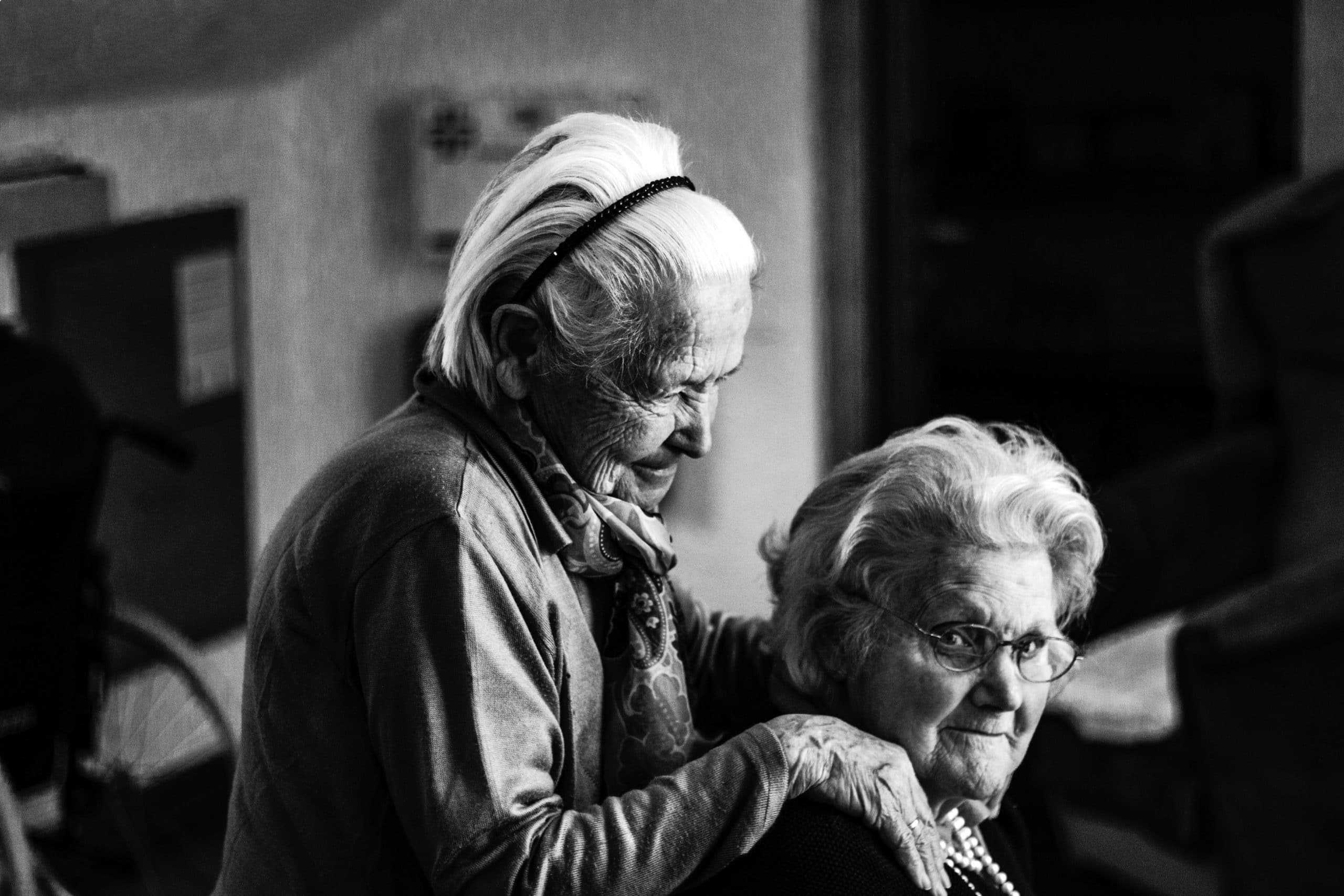
Guide to Finding the Perfect LGBT Senior Community
Are you an LGBT senior looking for housing or a senior community, or a caregiver who wants to learn more about LGBT-friendly housing for your family member? You are not alone. According to The National Gay and Lesbian Task Force, the older adult LGBT population represents one of the fastest growing subpopulations within our aging society. Currently, there are over 3 million LGBT seniors over the age of 50 in the US, with that number expected to double by 2030. There is a growing demand and need for LGBT services and housing options for this senior population.
What housing options do I have as an LGBT senior?
LGBT senior housing options have increased over the past few years due to the rising need and demand from LGBT baby boomers who are now in their 60s and 70s. This trend has seen new LGBT senior communities spring up in cities like New York, San Francisco, Houston, and several other cities across the United States.
Some LGBT seniors may prefer LGBT-exclusive communities over integrated ones. Atria, a provider of senior living communities across the country, plans to break ground on a San Francisco LGBT senior community in 2021.
Where do I go where I know I will be safe and treated fairly?
This is a question on the minds of many LGBT seniors when it comes to finding the right community for them. It can be more difficult for LGBT seniors to find a welcoming community, but because of organizations like the Services and Advocacy for GLBT Elders (SAGE), it is possible. SAGE runs a national LGBT elder hotline to help answer your questions. Some LGBT centers are building affordable housing for LGBT elders.
SAGE also trains staff in senior facilities on cultural competency. According to SAGE, LGBT seniors in these facilities say this training makes a positive difference in how they are treated. According to PBS.org, cities with sizable LGBT populations will have more experience with LGBT communities. “In less densely populated areas where programs have less opportunity to encounter and work with LGBT individuals and families, determining whether an agency will be welcoming and supportive may be more difficult.”
According to Senior Living, these are the best retirement communities for LGBT seniors:
- Fountaingrove – Santa Rosa, CA
- Seashore Point – Provincetown, MA
- Carefree Cove – NC
- A Place for Us – Cleveland, OH
- Spirit on The Lake – Minneapolis, MN
- Rainbow Vista – Gresham, OR
- Stonewall Gardens – Palm Springs, CA
- Discovery Bay Resort – British Columbia, Canada
- Birds of A Feather – NM
What questions should I ask when looking for senior housing?
A Place for Mom and PBS offer some useful tips and questions to consider when searching for an LGBT friendly senior community or assisted living facility. Here are some notable questions you can consider asking:
- Does the staff participate in cultural competency training?
- Are there posted policies stating non-discrimination based on sexual orientation?
- Do they display a rainbow flag sticker?
- Is “family” broadly defined?
- Are certain terms used such as “partner”, “domestic partner”, and “significant other”?
- Are there LGBT community organizations or clubs?
- Does the staff have experience caring for LGBT seniors?
- Are cohabitation policies inclusive?
- Is there respect for same sex partners in visiting?
- Do same sex partners have a durable power of attorney?
You should also get recommendations from friends and tour facilities.
Unique considerations and challenges for LGBT elders
Although LGBT seniors are seeing improvements in acceptance and assistance in today’s society, they suffered much discrimination in their young and middle adult years.
Today’s LGBT seniors adults lived in an era that was far less tolerant of their sexuality. They had to deal with social stigma, prejudice, discrimination, and harassment. For this generation, fear of loss of employment, housing, and services if their identity was discovered was stressful. For some, hiding their identity was a way to survive. Today, some still hold that fear of rejection and being ostracized by their peer group. Bloomberg reports that 80% of LGBT seniors hide their orientation when they enter a long-term care facility. They are also less likely to seek out services like senior center events.
LGBT seniors are more likely to live alone than their heterosexual peers. According to AARP, LGBT older adults are twice as likely to be single and four times less likely to have children than their non-LGBT peers. Some, unfortunately, are estranged from their families. Decades ago, this generation was barred from adopting or getting married. Many LGBT seniors experienced isolation and loneliness as a result.
Today, however, it is legal for gay and lesbian couples to get married and there are some LGBT seniors who are quite interested in dating and hold out hope for finding the one! Single LGBT seniors need a safe and supportive community where they can be themselves, meet other people from the community, and date. They also continue to need education about practicing safe sex and healthy relationships. Physical and mental health services in senior communities must provide non-judgmental and stigmatizing care and health information that LGBT seniors seek out and need.
LGBT elders’ finances
LGBT seniors are more likely to live in poverty. Bloomberg reported on a study that showed this population experiences high levels of employment discrimination which can lead to unemployment, fewer job and career opportunities, and financial insecurity. In their young and middle adult years many LGBT seniors were not being hired, not being promoted, and some were fired because of their sexual orientation. They have less retirement savings than their non-LGBT peers. Also, LGBT seniors lack Social Security benefits and pensions from partners who died before 2015 when same sex marriage was legalized across the country. Furthermore, lesbians tend to have less savings and retirement, as well as lower social security payments, compared to gay men due to discrimination against women in the workplaces during their prime working years.
Long term care insurance can help pay for the cost of entering a nursing or assisted living facility for those seniors who have such insurance, but it can be quite expensive, therefore many LGBT seniors do not have it. Medicaid will cover the cost of long-term care only after most savings have been sent and assets have been sold, although rules around selling one’s home to quality for long-term care have changed in recent years. Without benefiting from a partner’s savings or retirement plan if they pass on first, many LGBT seniors can be in difficult financial situation. An elder law attorney can help LGBT elders understand laws related to their finances and inheritance.
What about housing discrimination?
Housing discrimination is a reality for the LGBT senior population. Caring.com wrote about a study where testers in ten states posed as either gay or straight couples when they make calls to senior living facilities. “In almost half of the cases, the same sex couples faced discrimination from housing agents who didn’t mention the vacant units presented to straight couples.”
It is important that LGBT elders know what their rights are when it comes to housing and employment. There are anti-discrimination laws at the federal, state, and local levels that protect LGBT individuals and couples, specifically, from discrimination in housing, employment, and other areas of life (e.g. as consumers). Furthermore, the Supreme Court recently ruled in what NPR called a historic decision, “that the 1964 Civil Rights Act protects gay, lesbian, and transgender employees from discrimination based on sex.” Federal fair housing legislation can protect LGBT individuals and couples from discrimination in renting an apartment or buying a house. These federal court decisions and laws are important to have in place because some states, such as Alabama, have not enacted laws to protect the LGBT community from discrimination
The National Resource Center on LGBT Aging has a website with a FAQ page on Housing Rights for LGBT seniors (see resources below). The National Center for Transgender Equality also has a webpage with information about laws that protect the transgender community and how they can file a housing discrimination complaint. LGBT seniors living in nursing homes have rights to be free from discrimination and harassment as well. For example, facility staff cannot refuse to provide care due to a resident’s sexual orientation.
The bottom line
There are many more options for LGBT seniors who are looking to move into a retirement community or assisted living facility. There are also protections for LGBT residents of institutions. Do your research, know your rights, and talk to friends about where they have found the best help and the most welcome communities. Sometimes, it can help to enlist the services of an elder law attorney who can help you understand the laws, plan your finances, and avoid being discriminated against.
Sources:
- FAQs: Housing Rights for LGBT Seniors, LGBT Aging Center, www.lgbtagingcenter.org
- Know Your Rights as a Nursing Home Resident, LGBT Aging Center, www.lgbtagingcenter.org
- Know Your Rights, Housing and Homeless Shelters, National Center for Transgender Equality, transequality.org
- LGBTQ Housing Initiative, SAGE USA, www.sageusa.org
- LGBTQ+ Retirement Communities and Cities in the U.S., Senior Living, www.seniorliving.org
- Prepare to Care: A Planning Guide for Caregivers in the LGBT Community, AARP, www.aarp.org
- Supreme Court Delivers Major Victory To LGBTQ Employees, NPR, www.pbs.org
- What We Do, SAGE USA, www.sageusa.org
Related Articles

Elder Law Attorneys: A Comprehensive Guide
If you are someone who is taking care of a senior or has an elderly loved one, you should consider working with an elder law attorney. Though you may not expect it, individuals begin to face new and more complex legal concerns as they get older. Actions that may have seemed trivial when they were […]

When Is It Time for Assisted Living?
Wondering if it is time for assisted living for your loved one is a common question for caregivers. As a caregiver, you might have been considering the question for months or possibly even years. Your loved one might have declined to continue the discussion as the thought of moving out of their family home and […]

Respite Care: An Overview
Caregiving can be overwhelming at times. That’s why taking a break is essential for recharging your battery. Respite care, also called short break care, is a way for caregivers to get temporary care for their loved ones so they can take some time to rest. Getting this “me time” of respite care can renew the […]

A Caregiver’s Guide to ADLs and IADLs
This article has been medically reviewed by Dr. Martin Duggan in 2021. This content is not intended to be a substitute for professional medical advice, diagnosis, or treatment. Always seek the advice of your physician or another qualified health provider with any questions you may have regarding a medical condition. As a family caregiver, your […]

What is a Mechanical Soft Diet? Explanation, Preparation, and Meal Ideas
This article has been medically reviewed by Dr. Martin Duggan in 2021. This content is not intended to be a substitute for professional medical advice, diagnosis, or treatment. Always seek the advice of your physician or another qualified health provider with any questions you may have regarding a medical condition. As a caregiver, you may […]

Intestate Succession—Dying Without a Will
This article has been reviewed by a practicing attorney in 2020 This content is not intended to be a substitute for professional legal advice. Always seek the advice of an attorney or another qualified legal professional with any questions you may have regarding your situation. Death can be an uncomfortable topic. It is one many […]